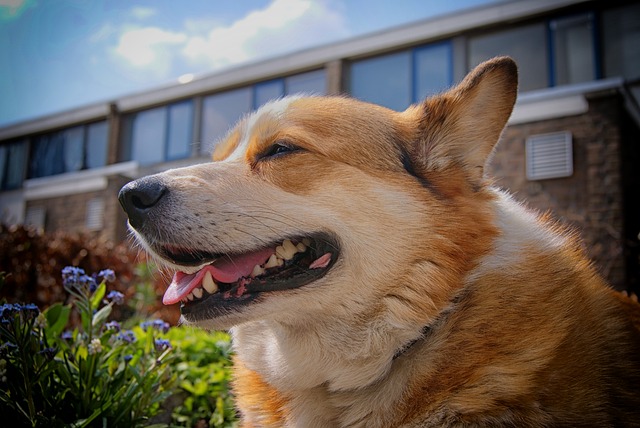
…skilled service…compassionate care
Happy New Year! Let’s Talk Wellness
The old year is behind us and 2022 lies ahead with lots of hope and promise. We need to make the best of it even if we can’t control most of it. What we can control is doing the best we can to keep our pets with us for as long as possible.
Start the new year off right and schedule a wellness exam for your pet so you can get the health status of your pet. A thorough physical exam can identify any potential problems before they escalate into bigger ones. Normally, we recommend an annual exam for pets without special needs or for younger pets. If perhaps your pet now falls into a senior category, defined generally by the American Veterinary Medical Association (AVMA) as cats and small dogs 7 years or older, and larger breed dogs at 6, an exam is recommended every six months. Whatever classification fits your pet, a thorough physical examination will get you off to a great start. Remember, make note of any areas of concern for your senior pet and talk to the doctor about them. Below is a small sample of what those concerns might be.
What we’re focusing on:
- Diet and Nutrition – Senior pets often need foods that are more readily digested, and have different calorie levels and ingredients, and anti-aging nutrients .
- Weight Control – Weight gain in geriatric dogs increases the risk of health problems, whereas weight loss is a bigger concern for geriatric cats.
- Parasite Control – Older pets’ immune systems are not as healthy as those of younger animals; as a result, they can’t fight off diseases or heal as fast as younger pets.
- Maintain Mobility – As with older people, keeping older pets mobile through appropriate exercise helps keep them healthier and more mobile.
- Vaccination – Your pet’s vaccination needs may change with age. Talk with your doctor about the appropriate vaccination program for your geriatric pet.
- Mental Health – Pets can show signs of senility. Stimulating them through interactions can help keep them mentally active.
- Environmental considerations – Older pets may need changes in their lifestyle, such as sleeping areas, to avoid stairs, more time indoors, etc. Disabled pets have special needs which can be discussed.
- Reproductive Diseases – Non-neutered/non-spayed geriatric pets are at higher risk of mammary, testicular, and prostate cancers.
- Increased Veterinary Care – Signs of illness or other problems can be detected and treated early
Insurance for Pets
Your pet needs and deserves quality veterinary care, yet such care comes at a cost. To defray these medical expenses, there are many companies offering pet insurance. If you currently do not have pet care insurance, consider reviewing the different policies to determine what they offer and their fees. Some companies gear their coverage toward general wellness care while others focus on major issues such as injuries or illnesses only. The cost for coverage will vary given the pet’s age, breed, pre-existing conditions and region of the country, so it is best to review the coverage to determine what meets your needs.
Pet Insurance Providers
To help you select which plan is best for your needs, there are consumer websites that compare features and costs of pet insurance, and/or reviews that might be helpful. Below is an alphabetical list of pet insurance companies for your review. Please do not change insurance companies if your pet already has problems diagnosed and you currently have insurance. Those problems will be considered pre-existing for new insurance and will not be covered. The bulleted ones are some of the most common insurance companies that our clients have. As with any choices, please make sure to call and ask insurance companies many questions so you fully understand your coverage.
- 24PetWatch – https://www.24petwatch.com/pet-insurance
- AKC Pet Insurance – https://www.akcpetinsurance.com/
- ASPCA Pet Health Insurance – https://www.aspca.org/about-us/strategic-cause-partnerships/aspca-pet-health-insurance
- Best Friends Pet Insurance – https://www.24petwatch.com/pdf/BestFriends_TermsConditions.pdf
- Embrace Pet Insurance – https://enroll.embracepetinsurance.com
- Figo Pet Insurance – https://figopetinsurance.com/
- Healthy Paws – https://www.healthypawspetinsurance.com/
- Lemonade – https://www.lemonade.com/pet
- Nationwide – https://www.nationwide.com/personal/insurance/pet/
- PetFirst Healthcare – https://www.petfirst.com/
- Pets Best – https://www.petsbest.com/
- Petplan – https://www.gopetplan.com/
- Pumpkin – https://www.pumpkin.care/
- PurinaCare – https://www.purina.eu/
- Trupanion – https://trupanion.com/
We also accept Care Credit, which is a medical credit card that offers you a payment plan and also gives you options to spread the payments out before interest starts accruing. https://www.carecredit.com/vetmed/
ROO’S NEWS!
by assistant editor, Roo, aka, Super Searcher With a Nose for News.
Search and Rescue Dogs on Duty in Kentucky
Trained search and rescue dogs are on the ground helping to locate individuals still missing after the devastating tornados in the Southeast. These dogs and their handlers volunteer their time and energy that others may live.
In addition to SAR dogs searching for people, the Humane Society of the United States (HSUS) and other groups are on the ground offering support and aid to injured animals and reuniting pets with their families. I want to offer a big thank you to all of these special organizations for their time and efforts.

Cornell University Research Study Compares Canine Cognitive Dysfunction (CCD) and Alzheimer’s Disease
The Dog Aging Project, a part of a nationwide research project launched at Cornell University, the University of Washington and the University of Arizona to investigate potential links between CCD and Alzheimer’s disease. Dr. Marta Castelhano, the director of the Cornell University Biobank and the National Institute on Aging’s four-year grant’s principal investigator hopes to identify such links and determine if they are triggered by the same genetic link and environmental factors.
The study uses biological samples taken from hundreds of dogs to identify CCD biomarkers. It is believed that CCD may be present in 35% of dogs age 8 and over. The dog CCD biomarkers can be applied to Alzheimer’s research to learn if the same cellular changes seen in dogs can be identified in humans.
Alzheimer’s disease is rapidly growing in the United States with an estimated 6.2 million Americans 65 and older living with Alzheimer’s disease. According to the Alzheimer’s Association, that number is expected to reach about 13 million by 2050.
This is one more way dogs are helping humans.
Do Dogs Understand the Spoken Word?
Here is another great article I sniffed out for you. An updated study published in Applied Animal Behavior Science, attempted to identify and develop an inventory of words dogs responded to regularly. The study relied on owners’ observations and determined that dogs responded to “a mean of 89 words (range 15-215)”. Generally, commands (verbs) represented the majority of words followed by general words and nouns. I know my friends and I really respond to the word “treat”! Read the full article by going to: https://www.sciencedirect.com/science/article/pii/S0168159121003002?dgcid=rss_sd_all#bib41
If you ask me, I think someone should do a study to determine how well humans understand dog words.
Special Days in January

Pet Travel Safety Day – January 2.
Traveling with your pet can be a challenge and holiday travel is busy. Get prepared for 2022 and any travel with your pet. That means you should keep your pet safe in your vehicle, travel with appropriate pet supplies, vaccination verification, medications, identification and whatever your special pet requires to enjoy your journey with you. Plan ahead to get necessary veterinary health certificates before traveling.
Happy Mew Year for Cats Day – January 2.
If you are lucky enough to share your home with loving felines, be grateful and thankful. If you want to add a kitty to your home, visit your local shelter to adopt a loving friend. Be sure your cat is spayed or neutered, then snuggle together on the couch. Purrrrfect!

